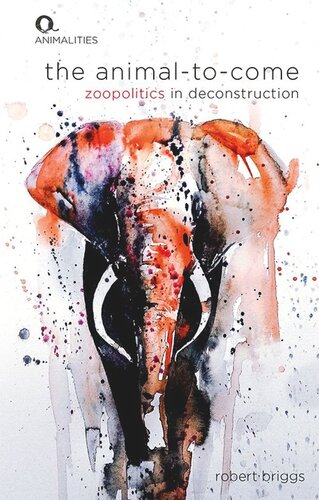

Most ebook files are in PDF format, so you can easily read them using various software such as Foxit Reader or directly on the Google Chrome browser.
Some ebook files are released by publishers in other formats such as .awz, .mobi, .epub, .fb2, etc. You may need to install specific software to read these formats on mobile/PC, such as Calibre.
Please read the tutorial at this link: https://ebookbell.com/faq
We offer FREE conversion to the popular formats you request; however, this may take some time. Therefore, right after payment, please email us, and we will try to provide the service as quickly as possible.
For some exceptional file formats or broken links (if any), please refrain from opening any disputes. Instead, email us first, and we will try to assist within a maximum of 6 hours.
EbookBell Team

4.0
36 reviewsWhat happens to political thought if we take the problematic nature of the human–animal distinction as a given, not as something to be demonstrated? What sorts of animal-existential possibilities are derived by tracking not the animal but the animal-to-come through the inherited traditions and institutions that continue to shape prevailing concepts of culture and politics?
Robert Briggs lays out an original interpretation of Derrida’s that which takes the question of the animal beyond the critique of political and philosophical anthropocentrism. Eschewing approaches grounded in animal vulnerability, Briggs reviews theories of power, politics and culture in terms of their capacity to enable novel images of zoopolitics. Along the way he engages with recently translated work in the emerging field of philosophical ethology, including Vinciane Despret’s What Would Animals Say If We Asked the Right Questions? (2016) and Dominique Lestel’s empirical and constructivist phenomenology of human-animal relations. Through these and other interventions, Briggs departs from well-established positions in animal studies to develop new ways of thinking animal politics today.